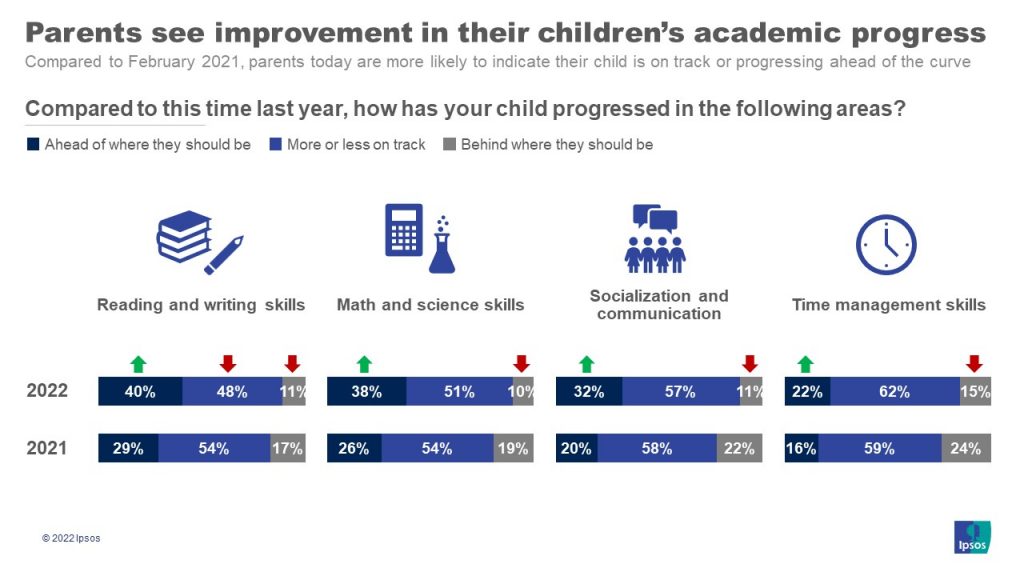New Poll Says Majority Of Parents Satisfied With Their Children’s Schools
It's looking like parents are feeling pretty good about their children's schooling right now. The school satisfaction rate is pretty high

Controversy is everywhere when it comes to the nation’s public education system. We are seeing math textbooks removed from circulation for race issues. We just got a Florida State Law nixing classroom discussion of gender identity for kindergarten through third grade. A very popular board book aimed at children was called “pornographic”. There was even a Twitter account taking shots at LGBTQ teachers. But according to a new poll, there seems to be quite a bit of school satisfaction on the part of parents.
With all that has been taking place in public schools across the nation, school satisfaction is one of the last things you’d expect from parents. Surprisingly though, parents don’t seem to be as concerned about these issues. In a nationally representative poll conducted by NPR and Ipsos, they reached out to 1,007 parents to get the temperature of how they felt about their children’s school and the things their children were being taught. There were no political lines drawn at the conclusion of the poll as most parents were content.
This school satisfaction poll was very similar to the one conducted by NPR and Ipsos last year that had parents responding to survey questions concerning the pandemic and what impact it has had on their children. It covered both social and academic aspects while also touching on the school’s performance during that trying time.
Compared to last year’s poll, the numbers are trending up. As the pandemic begins to wane (we hope), parents are positive about their school satisfaction. This year, an increasing number of parents feel their children are “ahead” when it comes to their reading, math, social skills, well-being, and mental health. Fewer parents feel their child is “behind” in any of those areas. According to the 2022 poll, nearly half of the parents (47%) agreed with the poll statement: “the pandemic has not disrupted my child’s education.” This is a significant increase from the 38% seen in 2021.

While school satisfaction appears to be the theme with parents, the same can’t be said for education researchers. Their findings are in direct contrast to how parents feel. These researchers have seen major disruptions in students with things like their poor test scores, poor preschool enrollment, and falling college attendance.
Over the past few decades, parents have shown great concern as it pertains to their child’s education. School satisfaction was not seen in abundance, so the result in this poll comes as somewhat of a surprise. But, while education still remains a top concern for parents, falling right behind inflation and crime, a close look shows that parents are, in fact, happy with schools and their children’s teachers. Of those polled, a whopping 88% agree that “my child’s teacher(s) have done the best they could, given the circumstances around the pandemic.” Another large number (82%) agree that “my child’s school has handled the pandemic well.”
It isn’t just the handling of the pandemic where school satisfaction comes into play for parents. They also feel well-informed when it comes to what is actually taking place inside the classroom. 76% of those polled are in agreement that “my child’s school does a good job keeping me informed about the curriculum, including potentially controversial topics.” To get a clearer picture of this, only 18% of the parents taking the survey said their children were taught about sexuality and gender in a way they opposed. A mere 19% said the same thing about race and racism. An even less 14% felt that way about how U.S. History was being taught.
“It really is a pretty vocal minority that is hyper-focused on parental rights and decisions around curriculum,” says Mallory Newall of Ipsos via NPR. Is it though? One Wisconsin mom doesn’t find her son’s school to her satisfaction. She says her son’s high school teacher has made “snarky comments about white privilege.” She is also not very fond of the fact that the school is asking her son what pronouns he prefers to be called.
For the most part, though, parents seem to be on board with the direction of public education, even with all its headline-making stories. School satisfaction, who’d have thought it possible? Let’s hope it continues this upward trend.







